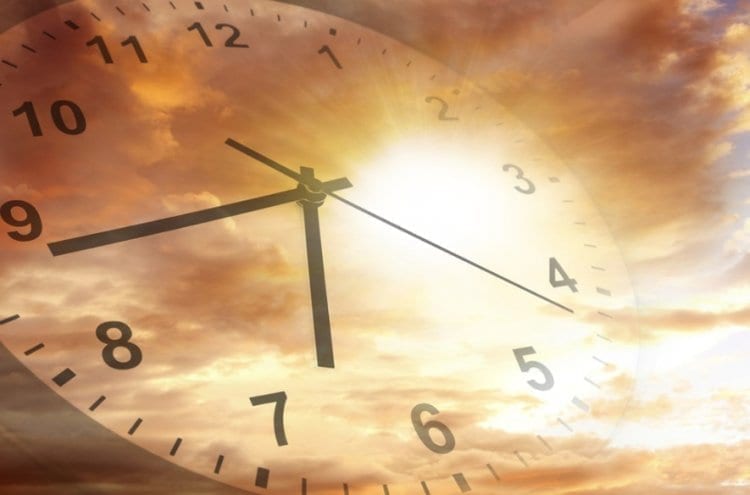At a recent dinner marking the twenty fifth anniversary of our local yeshivah elementary school, our community gathered to pay tribute to everyone who had worked tirelessly and with great self-sacrifice to found and sustain this institution. In his congratulatory remarks, my husband, Reb Michel, shlita, related the following story: When Napoleon’s army entered the city of Volozhin, the emperor sent an emissary to seek out the legendary Reb Chaim Volozhiner, whose reputation as a person of great wisdom and vision was known even in the non-Jewish world. It was late at night, and the only visible light emanated from the beis hamidrash. The messenger entered and saw an elderly man immersed in study. He asked him where he might find the venerable sage whose miraculous powers were renowned. Reb Chaim responded that he was this person, but he did not possess any of the abilities attributed to him. Shortly thereafter, a royal carriage arrived to take Reb Chaim to Napoleon, who was very respectful of the learned rabbis of Israel. The emperor presented him with an urgent question, encouraging Reb Chaim to be direct and frank and assuring him that he would not be punished regardless of what he said. Napoleon wanted to know if his legions would prevail against the Russians in the upcoming battle. Reb Chaim answered with a parable: A prince and his entourage were once traveling when they encountered a patch of quicksand. The prince’s carriage and four thoroughbred horses sank into the ground, and all efforts to extricate them were to no avail.
Moments later, a simple farmer driving a wagon pulled by three scrawny horses came to the same spot and also began to sink. The farmer cracked his whip, and to the prince’s surprise the horses successfully freed the wagon from the quicksand. Astounded, the prince asked the farmer how he had managed such a remarkable feat. The farmer’s response was most enlightening. He explained that the prince’s horses were unquestionably of superior quality— young, strong, and of impeccable pedigree. However, each came from a different country and had been trained differently. When they tried to pull the carriage out of the mire, they pulled at different times and in different directions, with the result that it remained stuck. “My inferior horses,” he continued, “have one great advantage—they are a family unit consisting of a mother and her two offspring. When they pull, they pull in the same direction.” Reb Chaim’s prediction was that Napoleon would lose. As well-trained and impressive as his army was, it consisted of handpicked soldiers from different countries and of different persuasions, who would probably welcome the downfall of some of the army’s units due to ethnic strife and competition.
By contrast, despite their inferior strength and training, the Russians were all defending their homeland and were thus of one spirit, fighting for a common cause. The outcome, of course, was as Reb Chaim predicted. The gist of my husband’s remarks was that the evening was not about individual honorees; rather, it celebrated a community that pooled its strengths and pulled together in the same direction, inspired and fueled by a common goal. When this is the case, even the most improbable dreams can be achieved. He also invoked the epic event of the giving of the Torah as further proof of this principle. As our Sages explained, the Jewish people merited to receive the Torah, the greatest of all treasures, because they camped at the foot of the mountain “as one person with one heart.” Without this unity, we would not have merited to receive the Torah. On a personal level, unity can only be achieved by setting aside our own agendas in deference to others. This requires overcoming our natural tendency toward self-absorption, noticing other people and trying to be sensitive to the different realities of their lives. An historic case in point was the tragic episode of Kayin and Hevel. The venerable and insightful Rabbi Sorotzkin, whom we met in Brazil many years ago, offered the following insight.
Why, he asked, did Hevel deserve to suffer the terrible fate of being murdered by his own brother? On the surface, the text doesn’t indicate any wrongdoing on Hevel’s part. He merely brought a korban that was accepted by Hashem, while Kayin’s offering was rejected. There doesn’t appear to be any complicity on Hevel’s part. However, further scrutiny reveals that only Hashem asked Kayin, “Why are you dejected?” Hevel’s transgression consisted of failing to notice his brother’s disappointment and to show empathy. A person who doesn’t sense or acknowledge the pain of a brother certainly doesn’t deserve to be killed, but neither can he be considered blameless. A contemporary example that comes to mind is the case of Esther, who came to me with a relatively common issue. Her father was terminally ill, and her siblings were insisting that a DNR (do not resuscitate) declaration be enforced, having come to that decision with the help of a competent halachic authority. Esther, the youngest child and apparently the one most emotionally attached to her father, was heartbroken. This was surely not what he would have wanted, she said, and life is precious at any cost. She interpreted the decision, reached without her consent, as an expression of her siblings’ jealousy over the fact that she had always been their father’s favorite.
As a result of her outspoken opposition, the family was being torn apart. I tried to help her separate the two issues: the longstanding hostility in the family directed at her, and the medical issue at hand. I assured her that since a reputable posek had backed this heartrending decision, it was daas Torah and therefore ultimately in her father’s best interest. I tried to guide her to understand that the greatest zechus for her dying father would be to work toward making peace with her siblings. Unity and mutual respect among children is the fondest wish of every parent, and every move in that direction is the greatest gift. The message to be derived is the overriding value of unity and togetherness. Every human being on the face of the earth experiences inner struggle. We all have a need for our existence to be affirmed and validated. The state of being alone in the universe is frightening, even terrifying. At the same time, our ego creates walls and barriers that separate us from others, generating personal agendas that block our ability to notice their feelings and sensitivities. The most effective approach I have found for counteracting the “me, myself and I” syndrome is to invoke the “it’s not about me” mantra. When confronted by potentially divisive issues, one should try to divest himself of ego and bias by not taking things personally, thereby making it possible to view a situation objectively and to avoid much heartache. This is obviously easier said than done, but when we refuse to allow ourselves to get sucked in, it is a liberating and empowering achievement. Our Sages teach that shalom, peace and wholesomeness, is the greatest vessel for containing blessing. Whereas a single thread is weak and vulnerable, many threads joined together are not easily unraveled. As Reb Chaim Volozhiner pointed out, a unified force pulling in the same direction can overcome much of the quicksand of life, resulting in triumph.





